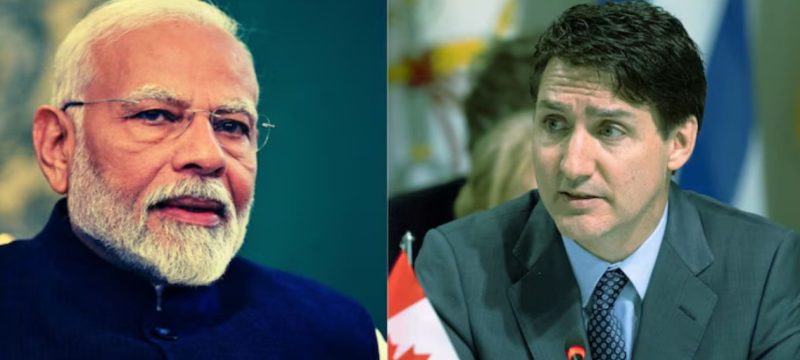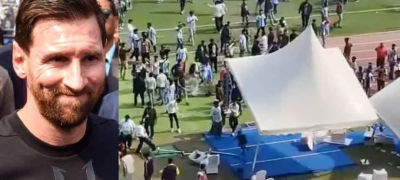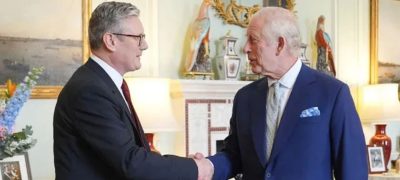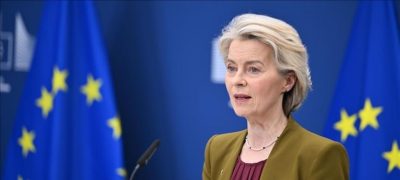Recent months have seen a significant escalation in tensions between Canada and India, two countries that previously enjoyed relatively stable diplomatic ties. The strain has been triggered by a series of political and security issues that have ignited a diplomatic rift, with accusations flying from both sides, leaving the future of their relationship uncertain.
What Sparked the Tensions?
The tension began to escalate when Canadian Prime Minister Justin Trudeau made allegations that India may have been involved in the assassination of Hardeep Singh Nijjar, a prominent Sikh leader in Canada who was a vocal advocate for Khalistan, a separate Sikh state. Nijjar was killed in British Columbia in June 2023, and his death has raised concerns in Canada’s Sikh community about potential foreign involvement.
Read more: Canada Expels Senior Indian Diplomats Over Alleged Link to Sikh Leader’s Assassination
Trudeau’s assertion, which was based on intelligence reports, suggested that Indian agents may have had a role in Nijjar’s killing. India strongly denied the allegations, calling them “absurd” and accusing Canada of providing a safe haven for separatist movements, particularly the Khalistan movement, which India views as a threat to its sovereignty.
Canada’s Position
Canada’s government, particularly under Trudeau, has consistently positioned itself as a champion of human rights and freedom of expression. Many in Canada’s large Sikh community have expressed support for the Khalistan movement, even though the Canadian government officially recognizes India’s sovereignty. Trudeau’s government has taken steps to reassure the Sikh community, including condemning acts of violence against its members and ensuring that their rights are protected.
Canada argues that it has a responsibility to investigate any allegations of foreign interference on its soil. The accusations regarding Nijjar’s assassination are framed as part of that responsibility. However, Trudeau’s public statements have caused friction with India, which views this as an internal matter being unfairly internationalized.
India’s Response
India has responded forcefully to Trudeau’s accusations. The Indian government has not only denied involvement in Nijjar’s killing but has also criticized Canada for allowing pro-Khalistan separatist groups to operate within its borders. India views these groups as a direct threat to its national unity and security.
In response to the growing tensions, India expelled a senior Canadian diplomat and put pressure on Canada to rein in Sikh separatist activities. India has also pointed to what it sees as an increasing level of interference in its domestic affairs by foreign nations, particularly Canada.
Diplomatic Fallout
The diplomatic standoff has led to a suspension of high-level talks between the two nations and the expulsion of diplomats. Both countries have also warned their citizens about potential risks in each other’s territories, and the once-promising trade and investment relationships between India and Canada have taken a hit.
India is a key player in the Indo-Pacific, and Canada has been eager to enhance trade ties and political cooperation in the region. However, the current diplomatic tensions threaten to derail these ambitions. Canada’s attempts to establish stronger economic ties with India as part of its broader Asia strategy now seem uncertain.
Broader Implications
The rising tensions between Canada and India are more than just a bilateral issue. They highlight the complexities of global politics, where the interests of diaspora communities can intersect with national sovereignty, creating friction. The dispute also underscores the challenges that countries face when balancing domestic political pressures with international diplomacy.
If the conflict between Canada and India continues to intensify, it could have far-reaching consequences for trade, immigration, and international relations, potentially affecting the broader geopolitical landscape.
What’s Next?
Diplomatic efforts are likely to continue behind the scenes, but the public nature of Trudeau’s allegations has made it difficult for either side to back down without appearing weak. The future of Canada-India relations remains uncertain, and much will depend on how both governments choose to navigate this highly charged situation.
As tensions rise, the world watches closely, waiting to see whether this rift can be mended or whether it will lead to long-term consequences for two countries with much at stake in their relationship.









